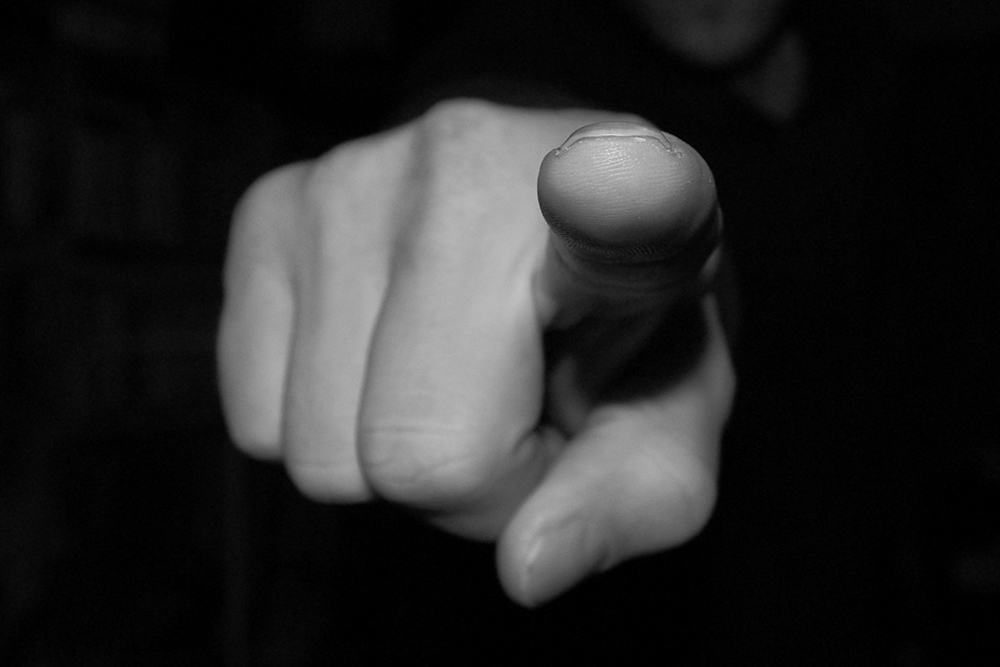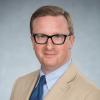
(Pixabay/PublicDomainPictures)
First things first.
If a Catholic bishop were to insinuate in a public forum with roundabout accusations that a cardinal was a heretic, I would be inclined to think that it was an act of bad faith. In fact, if a Catholic bishop did that without even naming the cardinal while quoting directly from a cardinal's remarks, I might conclude it was cowardice.
If a Catholic bishop did that, of course. I am not saying that one did. And even if I were to say that one did (which I am not!), of course I would have enough good faith and courage to name the bishop I was writing that about.
But since it never happened, there is no need for me or you to worry about any of that. I don't need to name any bishop here because nothing like that ever could spring from the field of the U.S. church.
No, no, no. We are all good, faithful Catholics here. We adhere scrupulously to canon law (especially Canon 220: "No one is permitted to harm illegitimately the good reputation which a person possesses nor to injure the right of any person to protect his or her own privacy"). All of our goals are holy. These are just hypotheticals. Make sure you understand me.
But since we're here anyway, let's think for a moment about that hypothetical situation.
Catholic life is filled with important, necessary and sometimes subtle distinctions. For example, St. Thomas Aquinas distinguished the two teaching offices of the church — the cathedra pastoralis and the cathedra magistralis. The former is exercised by bishops, the latter by theologians. Only the bishop can teach authoritatively for the church.
A bishop who holds a doctoral degree in theology might raise a question as a theologian that is not the same as his teaching as a bishop.
But the voice of the theologian is not irrelevant and, as Pope Francis has reminded us recently, the theologian has an important vocation sometimes to press beyond existing doctrine. Theologians raise questions.
For this reason, bishops and theologians must be in dialogue with each other. They need one another and the church needs both of them.
It can sometimes be the case that a bishop also is an academic theologian, the holder of a doctoral degree in, for example, moral theology. In such cases, a bishop might raise a question as a theologian that is not the same as his teaching as a bishop. Sometimes bishops who also are theologians speak as theologians, not as bishops. Think of the way, for example, that Pope Benedict XVI wrote his Jesus of Nazareth books as a theologian, not as pope.
This is one of those subtle distinctions, and an old one. Catholics know how to handle these complexities. Or they should.
So if a bishop — or even a cardinal — were to speculate in public about some elements of the church's teachings on sexuality or about "worthiness" to receive the Eucharist, he would not be a heretic. As a holder of (hypothetically) a doctoral degree in moral theology, he would be fulfilling his role, legitimately exercising the cathedra magistralis.
Maybe some people would say that theologians should not be raising such questions at all, whether or not they are bishops, because the church has made up its mind about a question like sexuality or worthiness to receive the Eucharist.
Advertisement
But those people would simply be wrong, because we know authoritatively that doctrine develops, that there have been numerous cases of the development of doctrine, and it certainly must be true that no development is possible without the raising of theological questions.
In a particular way, I think, we would want to focus on a question like worthiness to receive the Eucharist. Hypothetically, if we were to seize on a single piece of Scripture like 1 Corinthians 11:27-29 ("Whoever eats the bread or drinks the cup of the Lord in an unworthy manner will be guilty of profaning the body and blood of the Lord ... For anyone who eats and drinks without discerning the body eats and drinks judgment upon himself") and use that alone as our principle and guide while we ask a binary yes/no question, we would be committing a terrible error.
Theology is a holistic interpretive enterprise that asks questions about who God is and what God asks from us. Theology cannot be confined by parsing the meaning of a bit of text like it was a text from canon law.
To understand truly what it means to be worthy or unworthy, for example, we must step back far enough to see revelation, Scripture and tradition as a whole. We read the text in the light of the whole of the Gospel and Jesus' message. We do not separate the text out into individual parts because that distorts our perspective on the whole.
When we apply that method elsewhere, for example, critically reading scriptural texts about human sexuality in light of our growing historical and scientific understanding, we can see yet again that these are important theological questions, and they are fair questions for theologians to raise.
When people raise theological questions properly, according to their roles, it need not provoke disunity. Calling people heretics, apostates and schismatics certainly does.
Returning one last time to my hypothetical about bishops, canon law tells us that bishops have a special responsibility to "protect the unity of the universal church." Pope John Paul II has taught us that "only the faithful entrusted to the pastoral care of a particular Bishop are required to accept his judgement."
It is worrying that more and more bishops seem to bring their quarrels with one another (or with the pope) out into public spaces, broadcasting those arguments on social media and in the pages of Catholic periodicals where they can't help inciting Catholics to choose sides.
Those are the wrong ways to have serious conversations, and often it is done without regard for distinctions about bishops', theologians', cardinals' and the pope's proper roles. When bishops do that, and press Catholics outside their dioceses to accept their judgments, too often it oversteps their proper roles and comes at the cost of the unity a bishop is supposed to promote.
When people raise theological questions properly, according to their roles, it need not provoke disunity. Calling people heretics, apostates and schismatics certainly does.
A diocesan bishop has considerable authority inside his diocese and as a member of the college of bishops (cathedra pastoralis). But outside a council or synod that calls bishops together with the pope, a bishop's authority is rather limited beyond his diocese.
A bishop who is a theologian has some greater authority (cathedra magistralis) to raise questions, even if his statements are not authoritative teaching, because that is a theologian's vocation. A cardinal collaborates with the pope to govern the universal church and has considerably more liberty.
Our church would be far better off if imagining a diocesan bishop who remembers these distinctions, who is content to teach, sanctify and govern his own people while standing in communion with the pope, were not becoming such a hypothetical enterprise.







